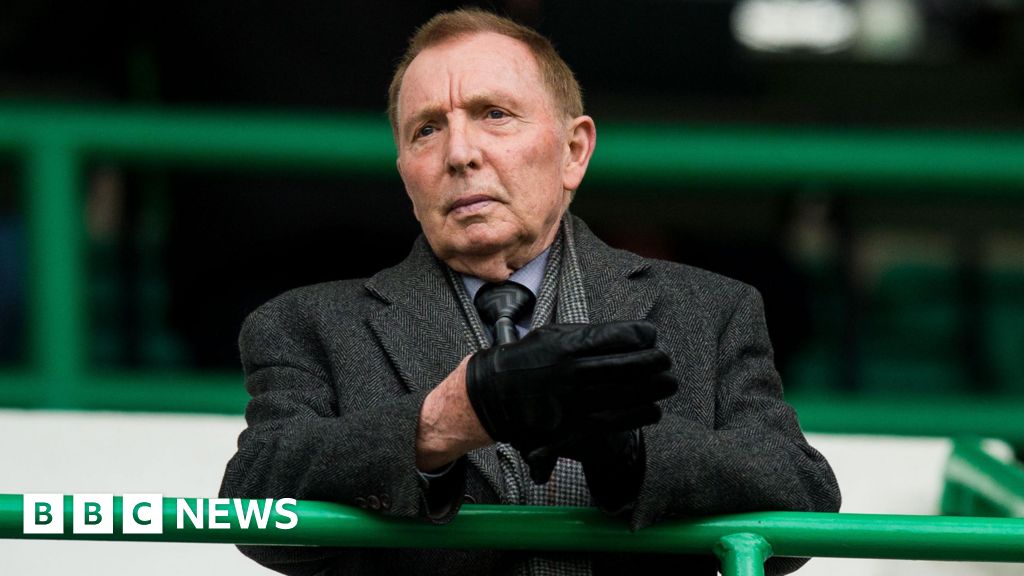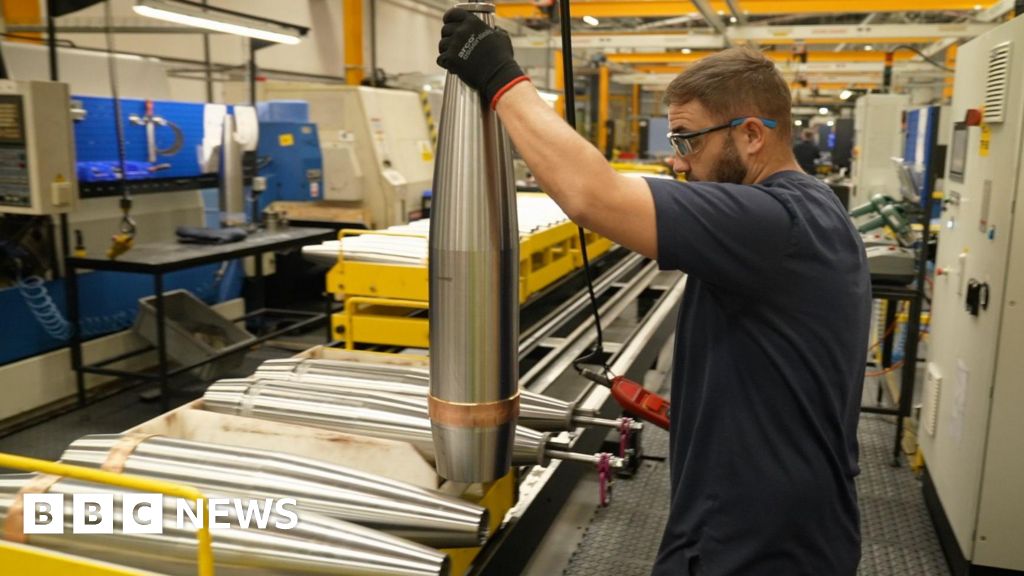ARTICLE AD BOX
Image source, Getty Images
The price of a pint of beer will have to rise by as much as 30p to help pay for higher wages and energy costs, one pub owner has warned.
As the government prepares to unveil its Budget, City Pub Group said price rises were "the only way forward".
On Monday, the government said the National Living Wage would rise to £9.50 per hour in April for those over 23 years old.
Clive Watson, the chain's boss, said this would cost it about £1m a year.
Other pub owners echoed Mr Watson's warning, with industry bodies calling for help for the sector.
Emma McClarkin, chief executive of the British Beer & Pub Association, said that while increases to the minimum wage and the minimum living rate would be "welcomed" by many staff in pubs, it was a further cost increase for pubs who were "still struggling to recover and face an uncertain future".
"It makes beer duty, business rates and VAT cuts in the Budget on Wednesday all the more important for the viability of our sector," she added.
Road to recovery
Chancellor Rishi Sunak's latest Budget, to be delivered later on Wednesday, comes as the pub trade is still recovering from lockdown measures imposed during the coronavirus pandemic.
City Pub Group weathered the financial storm thanks to government assistance, putting 99% of its staff on furlough during the pandemic.
"That's basically kept the industry on life support, but we're coming off life support now and we need to be able to have a road to recovery," Mr Watson told the BBC.
Last month, the group, which owns 45 pubs, reported that sales had been above 90% of pre-pandemic levels since Covid restrictions were eased in May.
But now it faces further challenges - not just minimum wage rises, but also higher energy and food costs, as well as employers' national insurance contributions going up next April.
The price of beer "would probably have to go up by 25 to 30p a pint" to take account of all that, Mr Watson said.
"We want to do our bit - it's very important, but at the same time we don't want everything going up the whole time, because all that will do is stoke inflation," he added.
UK inflation is expected to rise above 4% by the end of this year.
While Mr Watson said increases to the minimum wage were a "good idea", he warned that those increases could be "gobbled up by other inflationary pressures".
He said that a more effective measure would be for the government to cut VAT as a way of reducing the cost of living.
The hospitality industry currently benefits from a reduced VAT rate of 12.5%, but that is due to revert to 20% in April.
Kate Nicholls, chief executive of the trade group UK Hospitality, said that the VAT tax rise would be "unsustainable" and mean that businesses would have "no option" but to pass the cost on to customers.
"We are facing into considerable headwinds with a bubble of inflationary pressures coming through the supply chain, as well as wage rate inflation," she added.
Image source, Martin Greenlow
Image caption, Martin Greenhow said wage increases would cost his business thousandsCosts 'inevitably' passed on
Other pub chains are also suffering. In October, JD Wetherspoon reported a record annual loss after Covid lockdowns saw its pubs shut for 19 weeks.
The firm was also recently affected by a shortage of some beer brands, caused by driver shortages due to a combination of Covid and Brexit.
Martin Greenhow, managing director at Mojo, a chain of six pubs in the north of England, said supply chain costs were "certainly putting pressure" on the business.
"If costs go up, prices go up, it's fairly inevitable," he said.
All of the 89 staff the firm employs are currently on or above the National Living Wage.
"The coming increase will of course affect everyone, as those above it will also expect to see a pro-rata increment which will cost the business thousands," he explained.
Mr Greenhow said that these staffing and supply costs would "inevitably be passed on to the consumer".
"Furlough and grants helped us survive, but essentially our survival was achieved by huge borrowings, which represent another cost to the business and therefore another inflationary driver."
Image source, Ian Ridley
Image caption, The Cock in Ringmer is one of Ian Ridley's pubs'Something's got to give'
Ian Ridley runs three pubs and the majority of his 50 staff earn the National Living Wage.
"Something's got to give, we cannot absorb these cost pressures," he explained.
Although he has not worked through the cost projections for next year yet, Mr Ridley estimates the price of a pint could rise by 20p.
"When we're trying to encourage customers to come back and we're compete with supermarkets on booze, higher prices are not going to help us," he told the BBC.
The wage increases will mean an estimated £20,000 of extra costs, in addition to higher food, transport and brewery bills.
Rising energy costs are causing concern and Mr Ridley said the VAT hike in April and business tax rates were another "huge worry".

 3 years ago
59
3 years ago
59








 English (US) ·
English (US) ·